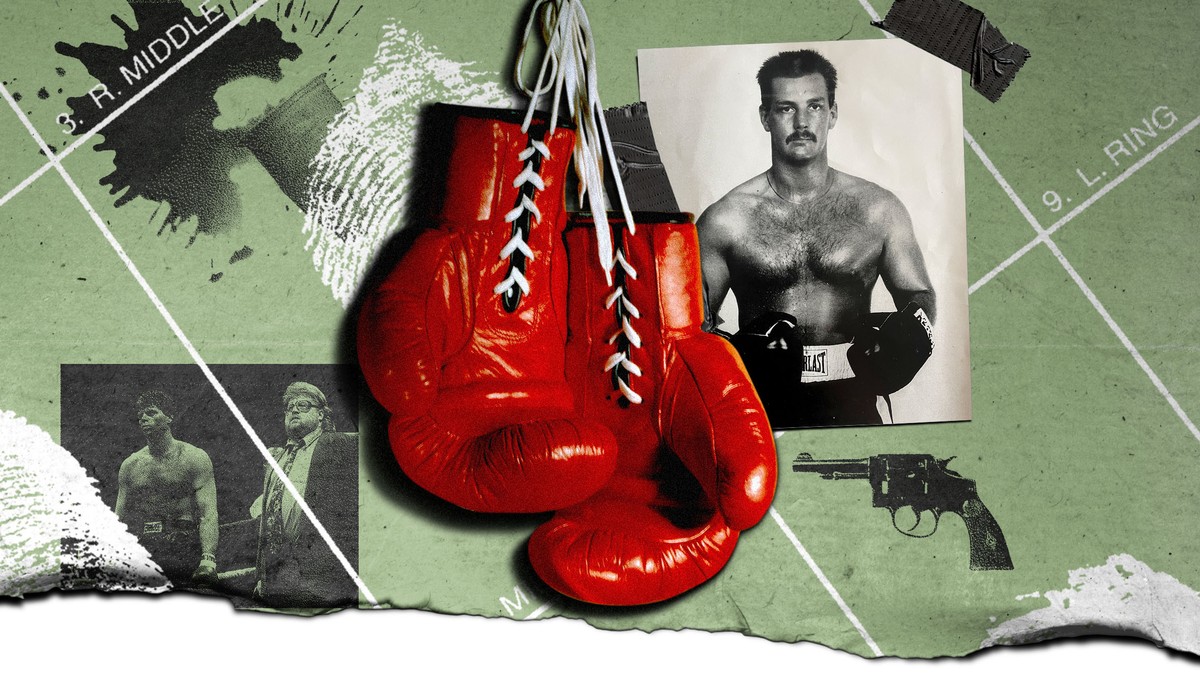The Dark Truth of Corruption in 90s Heavyweight Boxing Unveiled
Core Concepts
The author delves into the seedy underbelly of 90s heavyweight boxing, exposing a world filled with poison, bribes, and murder. The narrative follows the journey of Tim "Doc" Anderson as he navigates through a corrupt industry that ultimately leads to tragic consequences.
Abstract
The content uncovers the harrowing tale of Tim "Doc" Anderson, a former athlete turned boxer who found himself entangled in a web of corruption within the heavyweight boxing scene of the 1990s. From being drugged before fights to facing off against rigged opponents, Anderson's story sheds light on the dark realities of the sport. His tumultuous relationship with his promoter, Rick "Elvis" Parker, showcases the manipulation and deceit prevalent in the boxing world. Despite his struggles and attempts to seek justice, Anderson's life takes a tragic turn when he is convicted of murdering Parker. The narrative explores themes of betrayal, desperation, and ultimately redemption as Anderson fights for his freedom from behind bars.
Poison, Bribes, and Murder in the Seedy Underbelly of 90s Heavyweight Boxing
Stats
Before the match on December 3, 1992, Tim “Doc” Anderson was given water that tasted strangely sweet.
George Foreman dominated their fight on November 21, 1987.
Parker offered Anderson $500,000 to let Mark Gastineau knock him out in the first or second round.
In April 1994, an episode aired on CBS focusing on Parker's fight-fixing activities.
In April 1995, Anderson shot Parker between 11 and 13 times during a meeting at a hotel.
Quotes
"I can’t believe you shot me. Please help me!" - Rick "Elvis" Parker
"How dare you point a gun at me and threaten me like that? Just for that stunt, your sister’s dead." - Rick "Elvis" Parker
Key Insights Distilled From
by Will Pritcha... at www.vice.com 08-25-2023
https://www.vice.com/en/article/m7b3mn/tim-anderson-rick-parker-poison-bribes-murder-heavyweight-boxing
Deeper Inquiries
How did corruption in boxing during the '90s impact the integrity of professional sports?
Corruption in boxing during the '90s had a significant negative impact on the integrity of professional sports. The prevalence of fight-fixing, bribes, and unethical practices tarnished the reputation of boxing as a legitimate and fair sport. Promoters like Rick "Elvis" Parker engaged in manipulating fights, arranging fixed outcomes, and coercing fighters to take dives for financial gain. This eroded trust among fans, athletes, and stakeholders in the sport's authenticity and fairness. The exploitation of boxers for monetary profit at the expense of their well-being further highlighted the corrupt nature of certain individuals within the industry.
What role did personal relationships play in perpetuating unethical practices within the boxing industry?
Personal relationships played a crucial role in perpetuating unethical practices within the boxing industry. Tim "Doc" Anderson's friendship with Rick Parker exemplifies how trust and loyalty can be manipulated to exploit individuals for personal gain. Anderson's initial belief that Parker was his friend led him to enter into agreements that were detrimental to his career and well-being. Parker leveraged their relationship to coerce Anderson into participating in fixed matches, withholding earnings owed to him, and even potentially poisoning him during fights.
Additionally, personal connections between promoters, managers, and fighters often facilitated under-the-table deals, match-fixing arrangements, and other illicit activities aimed at maximizing profits or gaining advantages within the sport. These close ties allowed unscrupulous individuals to exert influence over vulnerable athletes who trusted them due to personal relationships rather than purely business considerations.
How does Tim "Doc" Anderson's story reflect broader societal issues beyond sports corruption?
Tim "Doc" Anderson's story transcends sports corruption by shedding light on broader societal issues such as manipulation, abuse of power dynamics ,and vulnerability exploitation . His journey from an aspiring athlete drawn into a web of deceit orchestrated by Rick Parker showcases how individuals with ulterior motives can prey on those seeking opportunities for success or stability .The toxic environment created by greed ,substance abuse,and criminal behavior mirrors larger systemic problems present across various industries where marginalized individuals are taken advantage off .
Moreover ,Anderson’s struggle against injustice ,poisoning allegations,and ultimately resorting violence reflects themes related mental health challenges ,desperation,and lack proper support systems .His actions towards parker also raise questions about self-defense,morality,and consequences faced when pushed past breaking point .Ultimately,his narrative serves as cautionary tale about dangers unchecked ambition,personal vendettas,and moral compromises pose not just within sporting realm but society at large
0
